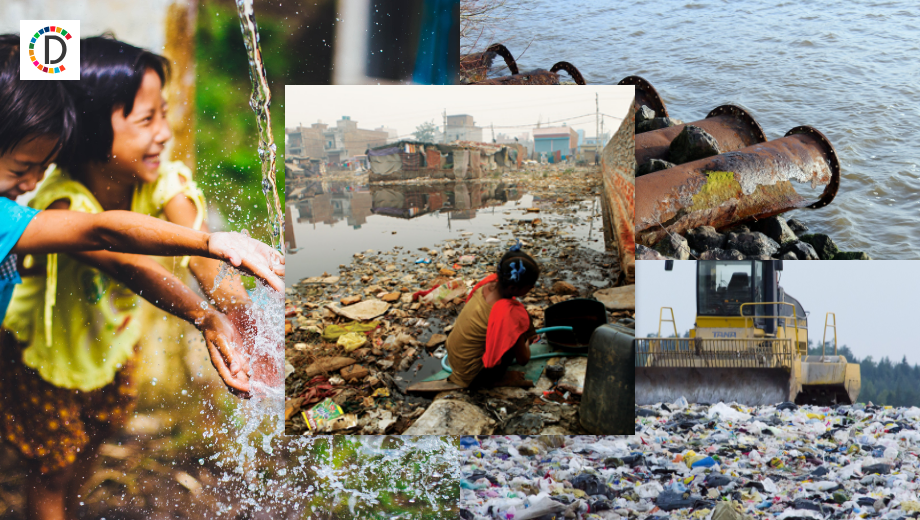Delhi's November air quality better compared to 2024, says DPCC; efforts on to avoid GRAP-III
The Delhi Pollution Control Committee DPCC on Saturday said that coordinated efforts by various government departments to curb air pollution in the national capital have started showing visible results, with the citys air quality remaining better on most days this November compared to the same period last year.

- Country:
- India
The Delhi Pollution Control Committee (DPCC) on Saturday said that coordinated efforts by various government departments to curb air pollution in the national capital have started showing visible results, with the city's air quality remaining better on most days this November compared to the same period last year. Officials said that Delhi has so far avoided reaching the pollution levels that had triggered the implementation of Stage III of the Graded Response Action Plan (GRAP) around the same time in 2023. ''Out of the last seven days, six have recorded better air quality than the corresponding days last year. This has been possible because of timely and coordinated action taken across departments,'' an official said during a press briefing. The review meeting, chaired by DPCC Chairman Sandeep Kumar and Member Secretary Sandeep Mishra, highlighted that for six out of the past seven days, Delhi's Air Quality Index (AQI) readings were lower than those recorded on corresponding days in 2024. According to official data which was shared during the press briefing, the AQI stood at 303 on November 1 (339 in 2024), 309 on November 3 (382 in 2024), 291 on November 4 (381 in 2024), 202 on November 5 (373 in 2024), 311 on November 6 (352 in 2024), and 322 on November 7 (377 in 2024).
Addressing concerns about data manipulation, officials asserted that air quality monitoring remains transparent and publicly accessible. They added that all actions are data-driven and regularly reviewed to ensure effectiveness. They also reviewed the national capital's air quality and ongoing mitigation efforts, noting that air pollution levels this November have been comparatively better than the same period last year. Officials pointed out that, unlike last year, when GRAP Stage III restrictions were implemented from November 13, pollution control actions began proactively this year. During the briefing, officials mentioned that multiple agencies have received directives to control dust and vehicular pollution, as well as to enforce strict regulations against biomass burning and industrial emissions. ''Mechanical road sweeping and water sprinkling have been intensified. Over 100 machines are currently being operated by various municipal bodies. Potholes are being repaired, landfill sites are being managed, and anti-smog guns are being used at several locations,'' the official said. The DPCC outlined a series of directions to various government departments, including strict collection and transportation of municipal waste and construction debris, enhanced mechanical sweeping, and intensified water sprinkling to control road dust. Departments have also been instructed to monitor pollution-emitting vehicles closely, ensure compliance reviews, and achieve visible improvement in AQI data through coordinated action.
The transport department has been instructed to conduct more checks on polluting vehicles, and Resident Welfare Associations (RWAs) have been encouraged to discourage biomass burning, especially as temperatures begin to drop. The DPCC appealed to citizens to avoid burning biomass, especially as temperatures drop, and to replace coal or wood fires used by security guards with electric heaters. It also reminded builders to install and operate anti-smog guns at construction sites with structures over five floors, a rule applicable at least until November 29. Meanwhile, commuters have been urged to opt for public transport or electric vehicles, ensure vehicles are well-maintained, and follow staggered office timings as advised by the Commission for Air Quality Management (CAQM) to help reduce congestion-related emissions. Additionally, residents have been encouraged to report pollution-related violations via the Green Delhi App and the 311 App, with complaints forwarded to relevant departments for prompt action. DPCC officials said the committee monitors data from 24 air quality stations, with 99 per cent of them functioning continuously. The compiled data is shared with the Central Pollution Control Board (CPCB) for AQI calculations and public release. ''The committee welcomes constructive criticism but emphasises that improving Delhi's air quality requires participation from all - citizens, enforcement agencies, and private institutions alike,'' the DPCC said. Officials emphasised that the goal this year is to avoid implementing GRAP Stage III and IV restrictions through proactive enforcement and public participation. ''Last year, GRAP Stage III was imposed on November 13. This time, with support from all departments and the residents of Delhi, we hope to prevent reaching that stage,'' the official said. Authorities said they continue to monitor pollution trends closely and will escalate GRAP measures if pollution levels worsen, including targeted restrictions on specific polluting activities.









